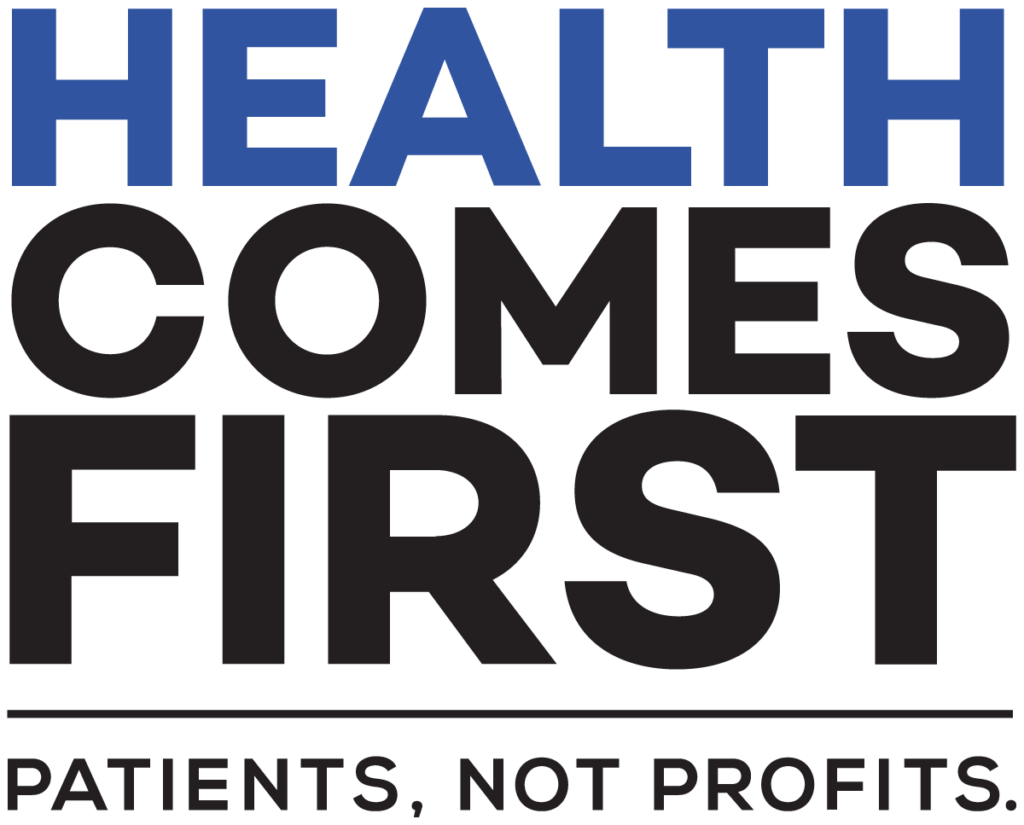
Everyone deserves access to the
high-quality health care they need most.
And we’re making sure of it.
Here’s what’s happening
Think about all the hard work you do for your employer. Now think about not getting paid fairly for it, especially in this economy. As rewarding and fulfilling as your work might be, you probably couldn’t imagine that. Right? Not being paid properly for the job you do while others eat the fruits of your labor and you have to make do with the little you have.
Well, not-for-profit health care providers, like us, don’t have to imagine it: it’s our reality. We’re continuing to battle rising supply and labor costs and a worsening shortage of workers. This has pushed us to our breaking point.
Health systems are facing inadequate payment from health insurance companies which is making it difficult to provide access to quality care patients deserve. Health insurers rake in record profits from the premiums they collect from patients and the inadequate reimbursement to care providers. Being paid fairly isn’t a nice to have. It’s a need to have.
PUTTING PATIENTS FIRST
Last year alone, Trinity Health provided $1.5 BILLION in community benefit, including $189 MILLION in financial assistance, $422 MILLION in programs for the underserved, and over
$2.7 MILLION in community grants supporting access to care, food transportation and housing…and more.
Health care is people care, first and foremost. We invest millions of dollars into our communities to provide the services people need most. We don’t just care for people who are sick, we keep people healthy. Coordinating care and partnering with people in new ways are examples of the many things we do to improve health outcomes.

Our Mission of healing goes beyond our hospital doors and deep into the communities we serve.
From 2018-2023, $47.6 MILLION went into the communities we serve to address health disparities, generating more than
$330 MILLION in community investment.
Providing $1.5 billion in community benefit is double what Trinity Health would have paid in taxes as a for-profit company. But we’re not the only not-for-profit health care system providing community care that’s central to our mission. Our job is to make people well and help them live healthier. In other words, making sure Health Comes First. We need health insurers to join us.

We believe health care should be accessible and affordable for all people — and Trinity Health is doing our part to make sure that happens.
We Can't Do More With Less
In 2023, the top 6 health insurance companies made $47 BILLION. That’s an average 10.5% increase in revenue. Health insurers often deny claims or fail to pay approved claims, leading to billions of dollars left unpaid to health system. These denials cost Trinity Health $120 MILLION per year.
Health insurance companies often get in the way of our patients’ ability to access care when they need it most. This means they fail to pay the thousands of doctors, nurses, and other caregivers providing compassionate care within the Trinity Health network. Patients need health insurers to put health first.

To continue providing the high-quality care and services communities need, our caregivers and facilities require health insurance companies to put patients first. Not their profits.
In the News
The Stakes Couldn’t Be Higher
We believe everyone deserves access to high-quality health care. At Trinity Health, we’re doing all we can to ensure all people have access to the care they need. But despite our best efforts, the access you deserve still hangs in the balance with health insurance companies. It’s time we shine a light on the real situation. We can’t accept unfair payment from the big commercial health insurance companies any longer. We need a balanced power dynamic that puts health over wealth. It should be patients first. Not profits. Because Health Comes First.


Stay Informed
We are asking health insurers to put patients first just like we do. Without them doing their part, access to care is at risk. And with higher costs and fewer caregivers, it’s a situation our communities can’t afford.
If this speaks to you, stay tuned. Check back soon to learn more about how you can support Health Comes First.









